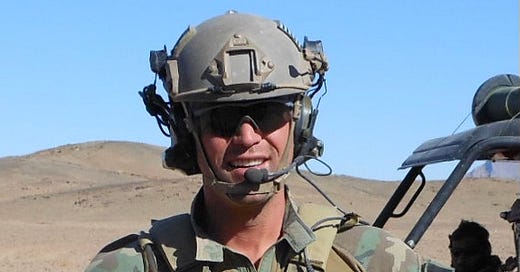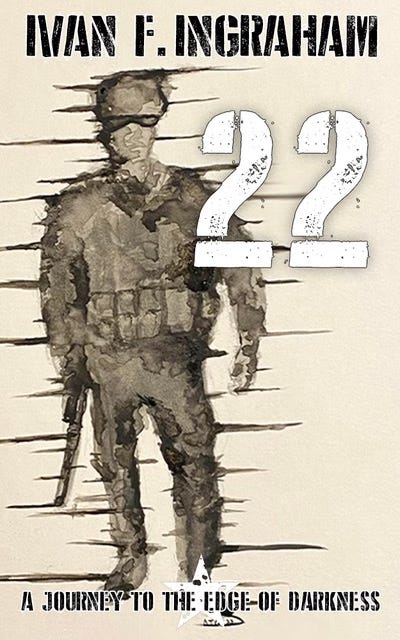This is my last installment this month promoting Veteran Suicide Awareness. My call to action is for people to look in on their friends and colleagues and offer a receptive audience to their individual requirements whether that is to talk or just to listen.
In light of Memorial Day, this time of year can be difficult for many veterans struggling with survivor’s guilt, grief, and accompanying anger and shame. I would know.
My book addresses the difficult subject of veteran suicide. Accepted estimates are 22 veterans kill themselves every day. Some believe it’s twice as much, but even one is too many. I hope people will read the book and gain an understanding of what some veterans are experiencing, though they may not know where to turn.
I wrote the book to provide continued awareness. Please check it out, recommend it, and provide your five-star review. If anything, reach out to those you know who may be hurting. Your concern makes a difference.
DREAMSCAPE
From their unique vantage point, his father watched this episode with curiosity.
“You went through a lot, Jay. You had nerves of steel; God, the training alone! Never mind each deployment being stressful!”
“You have no idea, Dad! There was a lot to know and little room for error. The firefights; the IEDs; the demolitions work,” Jay reflected.
“Six months of arduous training seemed like a long time, until you were in front of a live device. Then there was only pass or fail. All of it took a toll!” Jay paused, softer, “God, I wish I’d been paying attention that day. Those guys would still be alive.”
“You don’t know that.” His father said.
“Maybe. Maybe not. I’ll never know.” Jay replied.
“What I do know is that Burch and Avellino’s families were notified of their deaths just before Thanksgiving. That’s a helluva way to start the holiday season.”
Jay’s father stood silent.
When he was younger, Jay sought out World War Two veterans to learn from their experiences. He and his friends thought these men were larger-than-life, true heroes, and even more so if they had a Purple Heart. Having a valor award put them in another category all together.
For his own service, Jay had two Bronze Stars, both with Valor device. He wondered if anyone knew that detail if he would be held in the same esteem as the World War Two veteran. He may have been just as brave in combat, but his war wasn’t ‘cool’ and no one cared about Afghanistan or Iraq. People just didn’t have skin in the game, and like the World War Two veterans he admired, he bottled up the emotions and found other ways to cope.
Years passed and Jay came into his own as an accomplished EOD operator. Godwin had passed the torch to Jay and retired, but not without carrying his own burdens with him. Godwin’s career met a sad end after a drunken assault on a taxi driver during a night out drinking. Service in Special Operations caused marriages to fail and upended lives to the point of unraveling. Godwin lived all of it like a bad country music song. But that wasn’t the worst of it.
Quietly retiring from the Marine Corps, Godwin suffered from PTS, Post-Traumatic Stress, and turned to alcohol and THC to blunt his recurring nightmares, wrestling with why he was allowed to live, how he survived all that he did. He didn’t believe it was due to skill, and gone was his cocky swagger.
This pained Jay as he watched his friend succumb to a cycle of depression that grew deeper each year. Then Jay got the news. His mentor, Godwin, was dead. Killed on a rainy night while riding his motorcycle; his girlfriend, riding on the back, also died. This complicated things since Godwin was married. Alcohol and speed were a factor, but Jay knew that wasn’t what killed Godwin.
In popular films like The Hurt Locker, EOD techs walk around in bomb suits and wrestle with their internal demons as they take greater risks. In Jay’s and Godwin’s case those kinds of risks were reckless.
Their primary focus—their mission—was to get the people around them home alive, even if that meant the expense of their own mental and physical capital. The strain of combat and losing people was too much and this afflicted both of them the rest of their lives.
Godwin died in Afghanistan; he just hadn’t known it yet.
More than 120,000 military veterans have committed suicide since the Global War on Terror began in 2001; roughly 20 times the number of service-related combat deaths in BOTH Iraq and Afghanistan over a period now into its third decade. This equates to twenty-two U.S. military veterans taking their own lives every day. Read that again.
This is an average; some estimates double that number. If you or someone you know are struggling with the burdens of your service and are feeling helpless, please reach out to any number of professional counseling organizations or even a friend.
Your life matters, and your loved ones and fellow veterans want you to come home.
Please consider becoming a paid subscriber. It’s $2 a week—less than a beer when you go out and perhaps as satisfying without the caloric deficit—and $80 annually. It really helps me as a writer, and you’ll receive access to exclusive content including advanced project previews and releases. Thanks!






